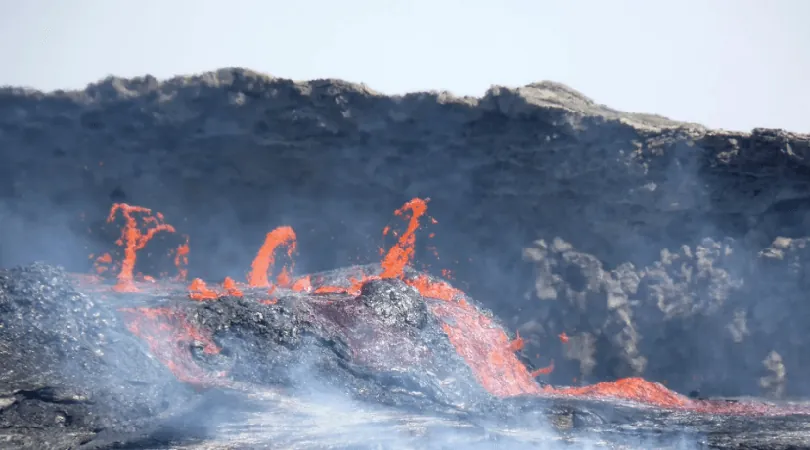
Is Africa on the Brink of a New Ocean? Scientists Say Yes!
2025-06-30
Author: Ming
Beneath the heart of East Africa, the Earth is alive with seismic energy, heralding the birth of a new ocean. Scientists have discovered that molten rock from the Earth's mantle is surging to the surface in Afar, Ethiopia, hinting at an impending geological transformation.
A groundbreaking study published in "Nature Geoscience" reveals that this molten upwelling, known as a plume, is responsible for tearing apart the continent, paving the way for a future ocean basin.
The Science Behind the Shifting Continents
Lead author Dr. Emma Watts, now a research officer at Swansea University, points out that beneath Afar, the mantle is anything but static. "It pulses, and these pulses carry unique chemical signatures," she explains. This dynamic interaction between molten rock and tectonic plates plays a critical role in shaping the continent's fate.
The Afar region is uniquely positioned at what geologists call a "triple junction," where the Main Ethiopian Rift, the Red Sea Rift, and the Gulf of Aden Rift converge. Here, tectonic plates are being slowly pulled apart, creating the perfect conditions for a new ocean to form.
A Geologic Heartbeat: The Pulsing Plumes
These mantle plumes act like a heartbeat, with their behavior influenced by the thickness of the tectonic plates overhead. Co-author Tom Gernon notes, "In faster-spreading regions like the Red Sea, these pulses travel efficiently, like blood through an artery." This insight could change our understanding of geological processes around the globe.
A Future Ocean: What Lies Ahead?
As tectonic plates continue to separate over millions of years, a new ocean could emerge. Experts suggest that at the current rate, a sea comparable to today's Red Sea could form in about 2030 million years.
Using over 130 volcanic rock samples, the research team explored the intricate structures of the Earth's crust and mantle in Afar, uncovering what they describe as "geological barcodes"—distinct bands that reveal the region's unique geological history.
Broader Implications: Understanding Earth's Dynamics
These discoveries extend beyond the creation of a new ocean. They offer valuable insights into other geological phenomena, such as earthquakes and volcanoes. Dr. Derek Keir emphasizes that the evolution of deep mantle upwellings directly influences the motion of tectonic plates, reshaping our understanding of volcanism and continental breakup.
As scientists delve deeper into the secrets of our planet, this study sheds light on the profound connections between Earth’s interior and its surface, hinting at a transformative future for the African continent.
In the shadow of looming geological changes, Africa stands at a pivotal moment in its geological history—one that could lead to the birth of a new ocean.



 Brasil (PT)
Brasil (PT)
 Canada (EN)
Canada (EN)
 Chile (ES)
Chile (ES)
 Česko (CS)
Česko (CS)
 대한민국 (KO)
대한민국 (KO)
 España (ES)
España (ES)
 France (FR)
France (FR)
 Hong Kong (EN)
Hong Kong (EN)
 Italia (IT)
Italia (IT)
 日本 (JA)
日本 (JA)
 Magyarország (HU)
Magyarország (HU)
 Norge (NO)
Norge (NO)
 Polska (PL)
Polska (PL)
 Schweiz (DE)
Schweiz (DE)
 Singapore (EN)
Singapore (EN)
 Sverige (SV)
Sverige (SV)
 Suomi (FI)
Suomi (FI)
 Türkiye (TR)
Türkiye (TR)
 الإمارات العربية المتحدة (AR)
الإمارات العربية المتحدة (AR)